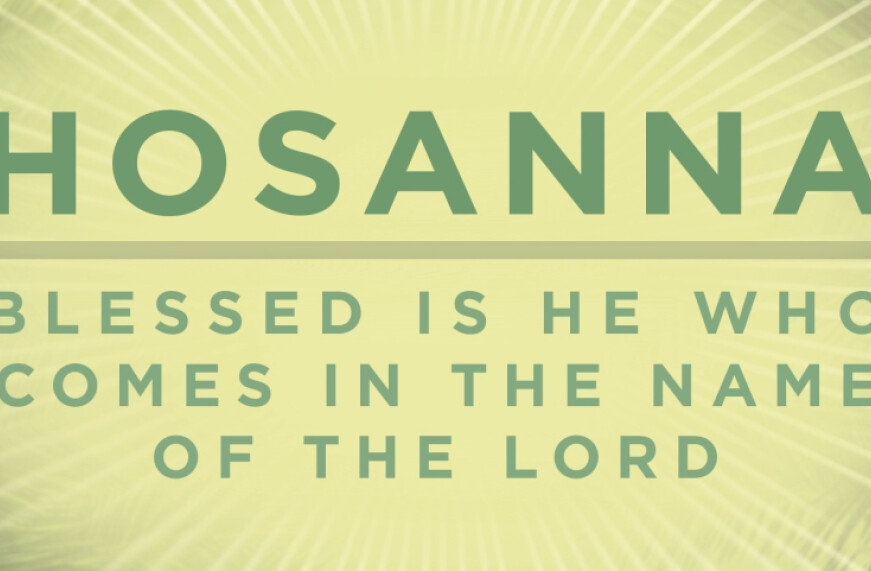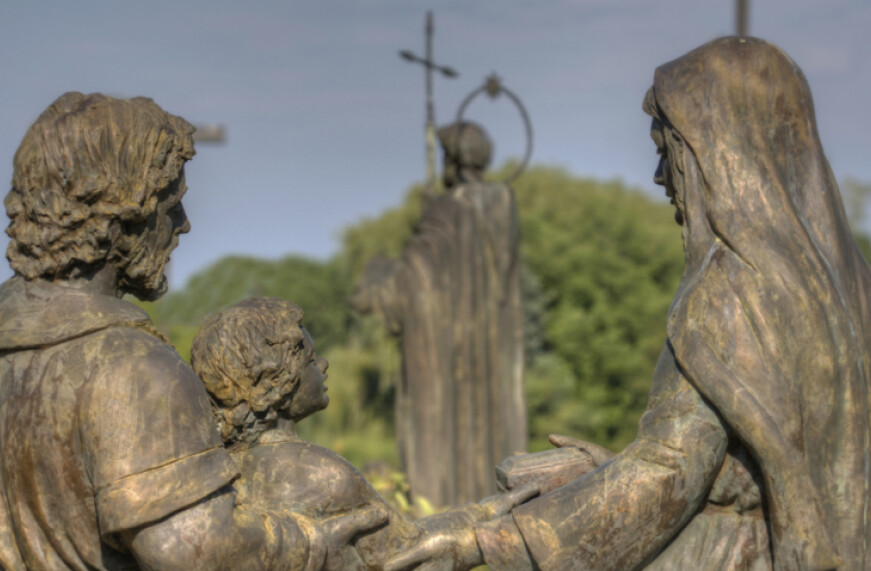God of Kept Promises

“Hosanna!” It’s a word we say or sing at each Mass as the priest prepares to consecrate the bread and wine into the Body and Blood of Christ. For many of us, it is most likely a word that gets overlooked, quickly gotten through as just another part of the Eucharistic prayer. But it means something quite specific and quite special, offering a key to understanding the truth about our God.
Hosanna can be translated as “Please save us” or “Please, Lord, come”. In the Eucharistic prayer, then, as we say “Holy, Holy, Holy, Lord God of Hosts, Heaven and Earth are full of Your Glory, Hosanna in the highest…,” we are first glorifying God and then begging Him to come and save us.
And what happens after we do? He quite literally hears our prayer and comes! The priest, acting in the authority of Christ, the Head of the Church, initiates the transubstantiation, and Our Lord is really and truly present among us. We beg for Him, and He answers our prayers, showing us in a very real and beautiful way that our God is a God of kept promises. Ask and receive. Beg for Him and He will come.
“Like a shepherd he feeds his flock;
in his arms he gathers the lambs,
Carrying them in his bosom,
leading the ewes with care.” (Isaiah 40:11)
Ever the Good Shepherd, God gathers us to Him. He cares for us; He feeds us, physically and spiritually.
During every age since the first day dawned after the Fall, our world has seemed a darkening place, where a separation exists between Creator and created, not His doing but ours. We perpetuate that separation every day with our venial and mortal sins, and despite our continuation in this life of sin, when we beg God for hear our prayers and come to us and the priest offers the sacrifice to the Father, Our Lord arrives, and does something so miraculous, unexpected and overwhelmingly loving: He elevates us from our mundane, sinful lives to ultimately share in something we can never earn and certainly do not deserve. As Fulton Sheen writes, “Everything in nature has to have communion in order to live; and through it what is lower is transformed into what is higher: chemical into plants, plants into animals, animals into man. And man? Should he not be elevated through communion with Him Who ‘came down’ from heaven to make man a partaker in the Divine nature?”.
This call-and-answer dialogue that occurs in each Mass shows unequivocally that our God is the God of kept promises, not solely in the past but in the present and we can trust, also in the future. It is in real time that He keeps His promise - “And behold, I am with you always, until the end of the age.” (Matthew 28:20) - so that He is here, now. All we need to do is ask and we can receive.
With the dark circumstances that constantly surround us in this world, without this well-founded trust in God, without His daily Eucharistic miracles, despair would be a threat to each and every one of us, and perhaps might even be our ultimate and inevitable conclusion, certainly non-believers struggle deeply in trying times such as we’re in now - but as Christians, and specifically as Catholic Christians, we have the ultimate hope.
So the next time you’re at Mass and the Eucharistic prayer begins, remember that you are asking God to come and save you. And He is.


